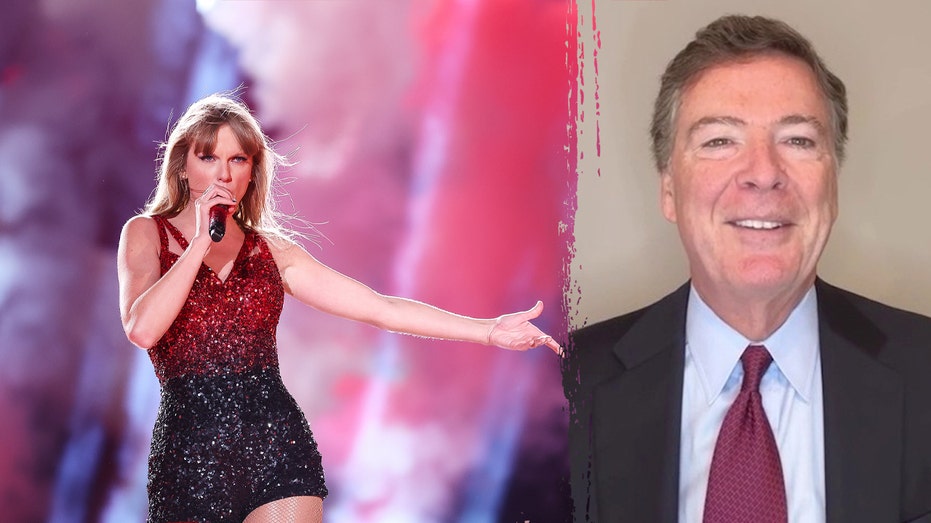Revisiting Justice Scalia’s same-sex marriage dissent: prophetic or inflammatory?

Ten years after Justice Antonin Scalia warned in a feisty dissent that the Supreme Court’s Obergefell v. Hodges decision “was a threat to American democracy,” his scathing criticisms of judicial overreach are now amplified by the White House.
President Donald Trump’s posture toward the judiciary branch has been largely hostile as judges repeatedly hand down orders derailing his agenda. His accusations that they are overstepping their authority echo arguments presented by Scalia, when he laid out his disagreement with the Supreme Court ruling in 2015 that same-sex marriage was a constitutional right.
“Justice Scalia was actually one of the primary drivers of this,” constitutional law scholar John Shu, who served in both Bush administrations, told Fox News Digital.
Scalia, a textualism adherent, argued in a fiery nine-page dissent that the right to marriage was not a liberty that was spelled out in the Constitution. The 5-4 decision, in fact, stripped liberty from citizens because it took away their ability to choose the leaders they felt could enact whichever marriage-related legislation they preferred, Scalia said.
At the time of the ruling, states were divided on marriage. Nearly a dozen had passed laws at that point to legalize gay marriage, which, in Scalia’s and the other dissenters’ minds, was the appropriate vehicle for that.
“A system of government that makes the People subordinate to a committee of nine unelected lawyers does not deserve to be called a democracy,” Scalia wrote.
However, Scalia did not stop there, blasting the “hubris” of the high court’s decision and taking veiled jabs at the majority opinion author, Justice Anthony Kennedy, a Reagan appointee known for his flowery legal writing.
Scalia is “nothing if not consistent,” Marquette University legal analysis professor Lisa Mazzie observed at the time. His dissent “contains the kind of over-the-top often acerbic rhetoric we’ve come to associate with him.”
HOW JUSTICE CLARENCE THOMAS LED SCOTUS TO KILL DEI
Shu, who knew Scalia personally, told Fox News Digital the late justice could go “a little overboard” at times.
“He was incredibly funny, great sense of humor, a great mentor, a great teacher. But he had very strong beliefs, and for people who would criticize his writing and say that sometimes he went a little overboard in the drama potion, okay, I would tend to agree on certain cases,” Shu said. “It certainly wasn’t the case all the time.”
Critics described his Obergefell dissent as extreme and disrespectful.
Among Scalia’s most memorable lines, “The Supreme Court of the United States has descended from the disciplined legal reasoning of John Marshall and Joseph Story to the mystical aphorisms of the fortune cookie.”
He said Kennedy’s opinion contained “straining-to-be-memorable passages” and was “couched in a style that is as pretentious as its content is egotistic.”
While the Trump White House is not the first to accuse judges of overstepping and infusing progressive politics into their rulings, Trump and his deputies have projected a uniquely potent rage toward the judiciary, saying the judges are encroaching on powers afforded to him under Article II of the Constitution.
“Our Court System is not letting me do the job I was Elected to do,” Trump wrote online in May in response to an adverse immigration ruling.
In February, he lambasted a “highly political, activist Judge” who ruled the executive branch had to make payments Congress approved it to make, despite the Department of Government Efficiency moving to stop the payments.
In perhaps the biggest judicial blow, the U.S. Court of International Trade struck down in May the central feature of Trump’s economic agenda, his tariff plan. That decision is temporarily on hold, but after the ruling, Trump questioned the three-judge panel that went against him. “How is it possible for them to have potentially done such damage to the United States of America?”
CLICK HERE TO GET THE FOX NEWS APP
Unlike Scalia’s era, the Supreme Court is now tilted 6-3 toward conservatives. It has been cautious about attempting to constrain Trump’s power in the early stages of litigation.
“Hopefully, the Supreme Court will reverse this horrible, Country threatening decision, QUICKLY and DECISIVELY,” Trump wrote of the tariff ruling.



